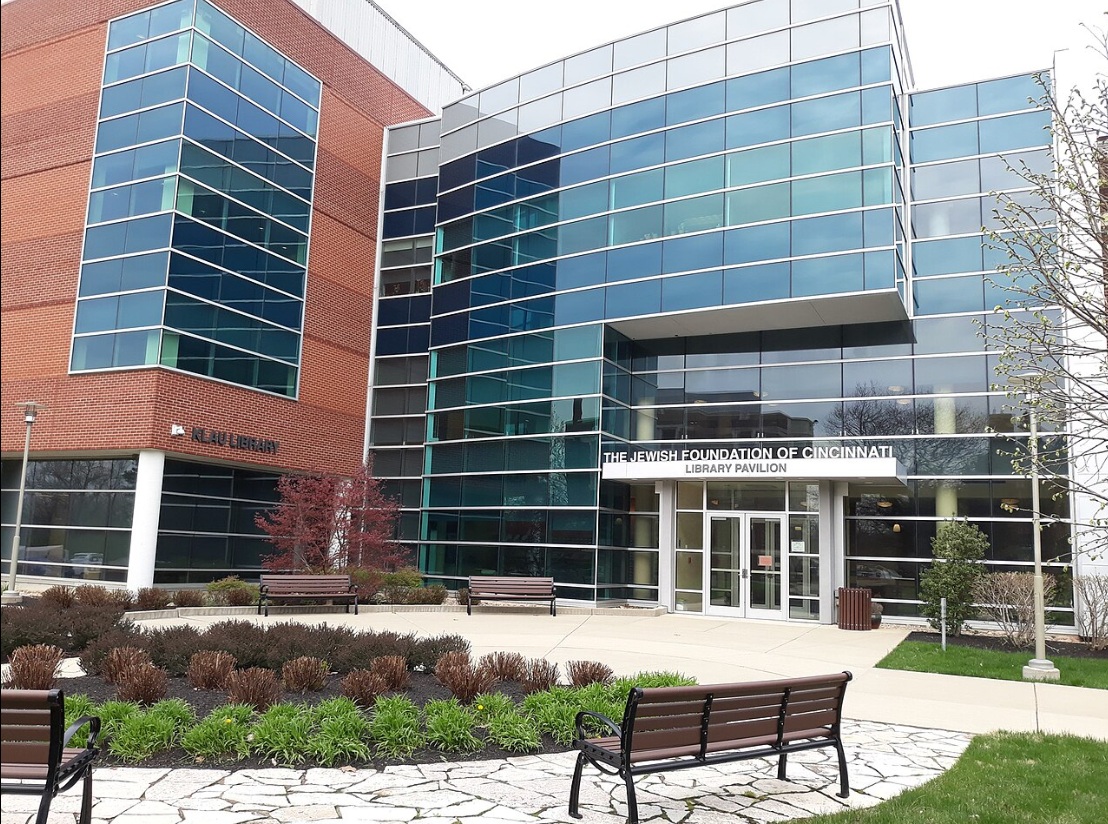Settlement Reached in Library Deaccession Case Between an Institution and Ohio Attorney General
- by Michael Stillman

The Klau Library at Hebrew Union College (Wikipedia photo).
The Ohio Attorney General and a religious institution have reached a settlement of the state's claims against the institution's alleged plans to deaccession some of the books in its library. In what some have labeled the "Great Deaccession" coming to libraries, this settlement may represent a road map to future deaccessions, or just a temporary bump in the road as traffic starts to build in the years ahead.
A year ago, supposed plans leaked out that Hebrew Union College in Cincinnati, Ohio, was considering deaccessioning some of the books from its library. This is no ordinary theological library. Hebrew Union was the largest source of rabbis in America for over a century. It was the training ground for Reform Rabbis, the largest group of affiliated Jews in America. In the process, its library developed a major collection of Jewish works, said to be second in size only to the National Library of Israel. It would be hard to overestimated the importance of this library to Jewish heritage.
However, times change. It became increasingly difficult to get prospective rabbis to come to Cincinnati for training. As a result of declining enrollments and financial constraints, Hebrew Union closed its residential rabbinical school in 2022. Nevertheless, it did keep its library in operation. Along with its students, the library was a source of learning for scholars from all over the world.
Unfortunately, the closing of the school left Hebrew Union with significant debts to pay. Without obvious other sources for funds, the college was at least considering the idea of deaccessioning some of their books, although they denied ever making such plans. Some of the items are of great financial value. They could quickly help deal with the debts. On the other side, was the great intellectual and spiritual value of the collection, as opposed to the financial value. It is irreplaceable.
Evidently, Ohio Attorney General Dave Yost felt the same about the collection. The idea of such a collection being removed from Ohio was particularly distressing. He sued. While owners generally have a right to do as they please with their property, Yost focused on one limitation. Much of the material was given to the college, gifts that either contained stated prohibitions against removing the items from the library, or at least implied ones, such as when fundraising drives were held to finance the purchase of additional books and manuscripts. This, the Attorney General argued, legally prohibited the college from selling many of its books.
After over a year of discussions, the Attorney General and Hebrew Union have reached a settlement. Hebrew Union has agreed to many conditions. They agreed to conform to ALA guidelines for managing and deaccessioning or "weeding" of material. The agreement requires proper care and consulting with interested parties on removing books. None of this overrides donor limitations on how the items are used. Hebrew Union agreed to provide a list of all items in their special collections including donor restrictions on sale, removal or otherwise deaccessioning of those items. Nothing may be removed from these collections without giving the Attorney General 45-day notice of intention to remove those items.
An important requirement states that "Funds received from the deaccessioned items shall not be used for operations or capital expenses, absent a declaration of acute financial need as determined by a two-thirds majority vote of the Board of Governors and thirty (30) days advance written notice to the Attorney General. In other words, Hebrew Union cannot sell any of its books and manuscripts to pay off debts short of "acute financial need."
Another requirement says that Hebrew Union "shall preserve all records related to the acquisition, maintenance, relocation, preservation, deaccession, sale, or transfer of any items in the Special Collections and Rare Book and Manuscript Collections in the Cincinnati Klau Library for a period of at least seven years." The term of all requirements in this order will expire in seven years.
Attorney General Yost released a statement after the court granted the settlement order. He stated, "These sacred texts are invaluable artifacts — religious and cultural treasures. Their sale would not only betray donor trust but also may violate legal restrictions placed on the gifts." The Attorney General continued, "A library without its most precious artifacts and texts is like a body without a soul. We are committed to ensuring that these irreplaceable items remain available to the public and are cared for as their donors intended."
The decision was greeted warmly by those, within and without the institution with interests in the accessibility of the texts and to their preservation. Perhaps some in the financial administration of the institution were less than thrilled, though they maintained no such removal plan was ever approved. It is hard to be anything but pleased with the outcome of this case, though the manner in which it was reached may make us a little uneasy. The government stepping in, particularly when a religious institution is involved, raises First Amendment freedom of religion, separation of church and state concerns, although the outcome could not have been better, even if the means were imperfect. Nevertheless, where there are binding restrictions, the institution has a legal as well as moral obligation to preserve the material.